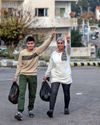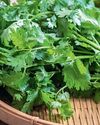
IN 1958, 17-YEAR-OLD ROSE DUGDALE was one of 1,400 young women who curtseyed before Queen Elizabeth II in the most prestigious event of the summer's debutante season. It was the last time that the well-bred daughters of the most aristocratic and affluent families in the country would be presented to the monarch in a ritual that dated back 200 years. Princess Margaret, with characteristic hauteur, would later say: "We had to put a stop to it. Every tart in London was getting in."
For the fiercely independent Dugdale, being presented to the queen was a means to an end. She had agreed on the condition her parents allowed her to attend the allwomen St Anne's College, Oxford, to study philosophy, politics and economics. Sixty years later she recalled the debutante season as "a horrible marriage market in which you were being sold as a commodity". By then, she had travelled a lunar distance from her elite upbringing in rural Devon and London, the extraordinary arc of her life perhaps most aptly condensed in her recent biography's title, Heiress, Rebel, Vigilante, Bomber.
Written by Irish author and journalist Sean O'Driscoll, the book details Dugdale's unlikely journey from reluctant debutante to dedicated IRA volunteer, whose reckless escapades and commitment to the cause of violent republicanism made headlines across the world.
In January 1974, she took part in the armed hijacking of a helicopter from which milk churns filled with explosives were dropped on an RUCbase in Northern Ireland. A few months later, she organised and led an audacious art heist in County Wicklow in which 19 artworks, including paintings by Rubens, Goya and Vermeer, were stolen and held for ransom against the release of IRA prisoners.
Denne historien er fra March 15, 2024-utgaven av The Guardian Weekly.
Start din 7-dagers gratis prøveperiode på Magzter GOLD for å få tilgang til tusenvis av utvalgte premiumhistorier og 9000+ magasiner og aviser.
Allerede abonnent ? Logg på
Denne historien er fra March 15, 2024-utgaven av The Guardian Weekly.
Start din 7-dagers gratis prøveperiode på Magzter GOLD for å få tilgang til tusenvis av utvalgte premiumhistorier og 9000+ magasiner og aviser.
Allerede abonnent? Logg på

Votes of confidence
From India to Venezuela and Senegal to the US, more people voted this year than ever before, with over 80 elections across the world. With rising authoritarianism and citizen-led resistance revealing its vulnerabilities and resilience in the face of unprecedented challenges, has democracy reached its breaking or turning point?

Out of touch How president sealed his own fate in martial law gambit
For Yoon Suk Yeol, this month's short-lived martial law declaration wasn't just a catastrophic miscalculation - it was the culmination of a presidency that had been troubled from the start.

Son of the soil Who is François Bayrou, the farmer turned prime minister?
François Bayrou, the new French prime minister, calls himself a country man. A tractor-driving \"son of the soil\" and breeder of thoroughbreds, he has run for president three times, saying his rural roots and centrist politics led him to try to find common ground between left and right.

Power plant workers keeping the lights on
The Guardian Weekly visits a Soviet-era coal-fired thermal installation to learn how it has held up to Russian attacks

Prince charmed Alleged spy scandal may have exposed China threat
Prince Andrew should be commended for doing Britain a great service, according to longstanding China watcher Charles Parton. The now marginalised royal has, the analyst observed, \"almost single handedly\" succeeded \"in highlighting the threat to free and open countries\" posed by the contemporary Chinese state.

In Moscow, a new life of secluded irrelevance awaits Assad
He was whisked away without a last message to his people, the aircraft's transponder deliberately switched off to avoid detection as it departed from an airbase in Syria.

'We fear new oppression' Alawites worry over rebel rule
To prepare khubeiza, the leaves of the kale-like plant must be roughly chopped and sauteed with onions, garlic and a dash of salt. According to folklore, the recipe originated among the Alawite communities who lived in Syria's mountainous coastline where the fibrous, wild-growing plant can be found in abundance. So poor were the Alawites in Ottoman times, the story goes, that the only food they could find to eat was khubeiza, which sprouts like a stubborn weed every spring.

'Gisèle is waiting for explanations'
The Pelicot rape trial has horrified the world. But as it comes to an end, the questions it has raised about French society and rape culture have still not been answered.

FROM DOCTOR TO BRUTAL DICTATOR THE RISE AND FALL OF ASSAD
0N THE FACE OF IT AT LEAST, the Bashar al-Assad of 2002 presented a starkly different figure from the brutal autocrat he would become, presiding over a fragile state founded on torture, imprisonment and industrial murder.

What fresh alternatives can be used to placate coriander haters?
Everyone knows a hater of coriander - also known as cilantro - who won't go near the stuff. Itamar Srulovich, however, is not one: \"I adore fresh coriander, and always have,\" says the chef/co-owner of the Honey & Co group in London.